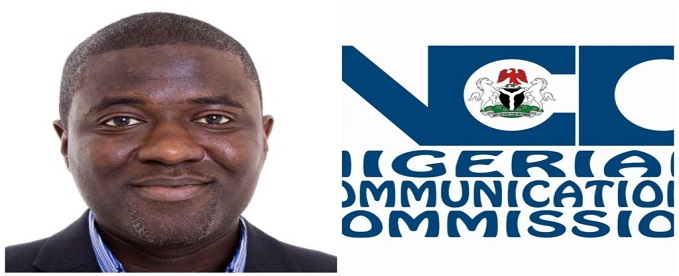Telecom
NCC Wants States to Cut Telcom Taxes

Nigerian Communications Commission (NCC) has appealed to states and local government councils across the country to cut taxes imposed on telecom companies, asserting that excessive taxation will be counterproductive to the growth of the industry.

Aminu Maida, executive vice chairman, NCC
The Federal Government in its 2024-2026 Medium-Term Expenditure Framework and Fiscal Strategy Paper said it would implement a five per cent excise duty on telecommunication services to boost its revenue base.
Aminu Wada Maida, executive vice chairman, NCC, lamented that with between 50 to 55 per cent taxes already imposed on telecom operators, it would be difficult to attract foreign investments into the sector in line with President Bola Tinubu’s directive to the NCC.
According to Maida, the NCC management has decided to embark on nationwide advocacy to appeal to states and local governments as well as other stakeholders on the need to reduce levies they impose on the operators, especially the Right of Way charges and other multiple taxes.
Maida made the remarks on Tuesday at the Digital Economy Complex, Mbora, Abuja, during an interactive session with journalists in Abuja.
He said, “We are going to be going on an advocacy campaign to see how we can convince the states to remove some of these obstacles like Right of Way and multiple taxations because I have seen some studies which indicate taxation is almost 50% getting to 55% in some areas in this country.
“And you would agree with me that if we are trying to bring in foreign investment that is not a good picture to paint,” the NCC boss said.
He appealed to states to consider the long-term benefits that would come to them if they allowed massive investments in the sector as job opportunities would be created alongside other value chains in the sector.
He also disclosed that the dispute between the two telecom giants, MTN Nigeria and Globacom Network would be resolved amicably soon as the commission was more interested in a level-playing field for all stakeholders.
He said the commission had developed a strategic vision based on five pillars to drive the telecom industry and ensure that it continued to contribute to the Gross Domestic Product of the country as expected.
The EVC acknowledged the challenges associated with the quality of services from Mobile Network Operators and Internet Services Providers, saying the commission would adopt “a total consumer experience” to address the challenges.
He also advised consumers complaining about data depletion to look inward as most of the problems had to do with the types of handsets they are using coupled with the services available and the digital services they enjoyed without considering cost implications.
Wada said, “Our approach will thus be to walk towards the expectations of these stakeholders, and everything for me starts with the consumer and the expectation of the consumer is very simple – quality of service.
“I don’t think you can say anything more than that. Quality of service and this quality of service, we are talking about a total consumer experience not just about drop calls or I can’t make a call.”
He added, “There is a total quality of experience right from how do you find and select the right network to use, how do you onboard onto that network talking about SIM registration process, process of linking your SIM to your NIN and of course after you have gone through all of that when you are using it, how easy is it for you to select a tariff, how transparent is the tariff, how are you supported by the entire host, how do you onboard from the network, these are important.”
Telecom
Oyedele Dismisses Claims Bank Accounts Without TIN Will Be Frozen

Taiwo Oyedele, Chairman of the Presidential Committee on Fiscal Policy and Tax Reforms, has dismissed reports that bank accounts not linked to a Tax Identification Number (TIN) will be frozen or automatically debited from January 1, 2026.

Taiwo Oyedele
Oyedele described the claims as false and misleading, warning Nigerians against panic over misinformation surrounding recent tax and financial reforms.
In a post on his X handle Tuesday morning, he wrote: “Don’t let anyone manipulate you. Your bank account is safe. Misinformation makes you panic and fear a reform that is designed to help you.
“When they tell you that your account will be frozen or automatically debited from January 2026, ask them for the evidence in the new law. Be wise.”
He stressed that no provision in the new tax laws authorises the freezing of bank accounts, adding that the rumours are part of widespread misrepresentation of the reforms.
The committee chairman reiterated that the reforms are intended to simplify Nigeria’s tax system and ease the burden on ordinary citizens, not to impose punitive measures on bank customers.
Telecom
Amazon Blocks 1,800 North Koreans From Job Applications

US tech giant, Amazon has disclosed that it blocked more than 1,800 North Koreans from applying for jobs, amid growing concerns that Pyongyang is deploying large numbers of IT workers overseas to earn and launder funds.

Amazon
In a LinkedIn post, Amazon’s Chief Security Officer, Stephen Schmidt, said North Korean nationals have been attempting to secure remote IT roles with companies around the world, particularly in the United States.
He noted that the company recorded nearly a one-third increase in such applications over the past year.
According to Schmidt, many of the applicants operate through so-called “laptop farms” — computers physically located in the US but remotely controlled from abroad.
He warned that the issue is not unique to Amazon and is likely occurring at scale across the tech industry.
He added that common red flags include incorrectly formatted phone numbers and questionable academic credentials.
The issue has previously drawn the attention of US authorities. In July, a woman in Arizona was sentenced to more than eight years in prison for running a laptop farm that helped North Korean IT workers obtain remote jobs at more than 300 US companies.
Officials said the scheme generated over $17 million in revenue for both the woman and North Korea.
Last year, South Korea’s intelligence agency also warned that North Korean operatives were using LinkedIn to pose as recruiters, approaching South Koreans working at defence companies in an attempt to steal sensitive technological information.
“North Korea is actively training cyber personnel and infiltrating key locations worldwide,” Hong Min, an analyst at the Korea Institute for National Unification, told AFP.
He added that, given Amazon’s business model, the motivation behind such operations is largely economic, with a high likelihood of attempts to steal financial assets.
North Korea’s cyber warfare programme dates back to at least the mid-1990s and has since expanded into a cyber unit of about 6,000 personnel known as Bureau 121, according to a 2020 US military report.
In November, Washington announced sanctions against eight individuals accused of being state-sponsored hackers, alleging their illicit activities were carried out to fund North Korea’s nuclear weapons programme.
The US Treasury has also accused North Korea-linked cybercriminals of stealing more than $3 billion over the past three years, primarily through cryptocurrency-related crimes.
Telecom
Treepz Launches Direct Flight Bookings to UK, Canada, UAE and 210 Global Destinations

Treepz, Africa’s leading mobility and travel technology company, has officially launched direct flight bookings on its platform, enabling customers to search, compare and book flights to more than 210 destinations worldwide, including the United Kingdom, Canada and the United Arab Emirates.

The development marks a major milestone in Treepz’s transition from a mobility provider into a fully integrated travel platform. With the new service, travelers can now complete the entire booking process — from flight search to payment — directly on the Treepz website without relying on multiple agents or third-party platforms.
Speaking on the launch, Mr. Onyeka Akumah, Chief Executive Officer and Founder of Treepz, described the initiative as a defining moment for the company and for travel access across Africa.
He said launching flight bookings to serve customers with flights to over 200 destinations was a major achievement, noting that travelers could now search for flights, enter their details, make payments with their cards, and complete bookings instantly on the platform without delays or switching between multiple websites.
The launch comes at a critical time for the African travel market. December is widely regarded as the busiest travel season on the continent, driven by holiday vacations, family reunions, weddings, festivals and end-of-year celebrations.
Millions of Africans travel locally and internationally during this period, often facing challenges with slow booking systems, unclear pricing and fragmented services.
Treepz’s new flight booking system is designed to address these challenges by offering a faster, more intuitive and reliable experience.
Customers can now search and book flight tickets directly on the Treepz website, compare prices and travel options in real time, make payments using any card option, and complete bookings faster without switching platforms.
Treepz has outlined ambitious plans for 2026, including unlocking access to over six million hotels globally, which will allow travelers to book flights and accommodation together in one seamless flow.
The company also plans to expand its car rental services into Europe and South America, further strengthening its position as a one-stop travel ecosystem.
According to Akumah, these developments will significantly reduce planning time for both leisure and corporate travelers, while giving customers more control and convenience.
Treepz has already facilitated more than six million movements across multiple cities and countries, ranging from daily commutes and corporate transportation to group travel and event logistics. With active operations across Africa and recent expansion into Canada, the company continues to grow its international footprint.
The addition of flight bookings strengthens Treepz’s ability to serve global travelers while maintaining its reputation for reliability and customer-focused service.
By integrating flights, accommodation, ground transportation and experiences into one platform, Treepz is positioning itself as more than a mobility provider.
The company is evolving into a comprehensive travel solution designed for modern travelers who value speed, clarity and convenience.
Industry analysts say the move could redefine travel access across Africa, particularly during peak seasons when demand for efficient booking systems is highest.
With this launch, Treepz has taken a bold step toward building a unified, tech-driven travel ecosystem that connects Africa to the world.

 News3 days ago
News3 days agoUS Okays $2.1Bn for Christian Healthcare in Nigeria

 E-Financial3 days ago
E-Financial3 days agoSterling Bank, Water.org, Sterling One Foundation Partner on WASH Loan for Millions

 News3 days ago
News3 days agoSERAP Asks Tinubu to Release CTC of Tax Bill

 Broadcasting3 days ago
Broadcasting3 days agoTim Akano Recounts 20-Year Growth, Media Support at NITRA End-of-Year Meet

 News2 days ago
News2 days agoUS Begins Partial Visa Ban on Nigerians January 1

 General News3 days ago
General News3 days agoLeo Stan Ekeh: A “Rare Avis”, an Unconquerable Entrepreneur

 General News3 days ago
General News3 days agoFCCPC Forces Ikeja Electric Into Compliance, Unseals Headquarters After Rights Breach

 General News3 days ago
General News3 days agoNITDA Wins Triple SERVICOM Honours for Citizen-Centred Service Delivery



























